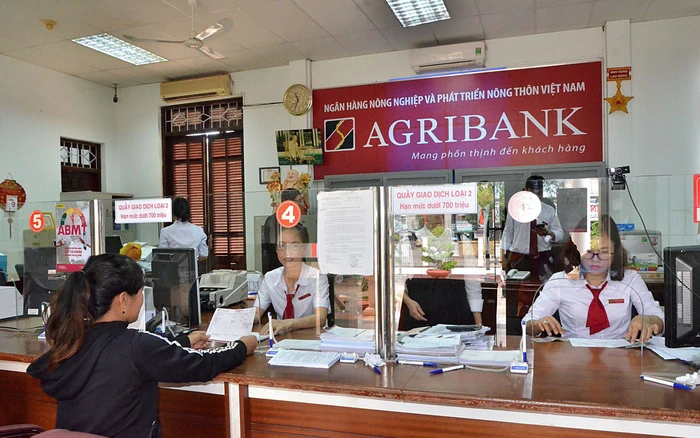
This directive has come from the State Bank of Vietnam, although the promotion of consumer loans at this point of time comes with many risks. It is currently difficult to forecast or predict any outcome of this move to stimulate the economy.
Low interest rates
Recently, the Bank for Investment and Development of Vietnam (BIDV) announced a package of VND 30,000 bn for loans to individual customers with an interest rate rate reduced by about 0.5% per year. BIDV will apply interest rate from 5.5% per year on loans for less than six month-term, and 6% per year interest on loans for six to twelve-month terms, until the end of September. Previously, BIDV had further reduced the interest rate for medium and long-term loans by 0.1% to 0.2% per year on housing loans, car loans and long-term loans for production and businesses.
At the Saigon-Hanoi Commercial Joint Stock Bank (SHB), individuals have the opportunity to approach for a business loan package at an interest rate from 9.6% per year to 8.4% per year. For consumer loans, SHB has reduced interest rates for real estate purchases, from 7.5% per year to 6.5% per year, and for housing loans and car loans, the rate has dropped from 7.7% per year to 6.8% per year.
Viet Capital Bank has also announced about VND 3,500 bn for consumer loans with many preferential interest rates of 7.99% per year for individuals for production and business; 8.09% per year for real estate; and from 8.69% per year for building and repairing of houses. LienVietPostBank is giving loans to buy real estate, and for the building and repairing of houses at a preferential interest rate of 7.5% per year, and consumer loans with collateral at 8.2% interest per year. Some other banks such as Orient Commercial Joint Stock Bank (OCB) and Shinhan Bank are also offering consumer loans at very low interest rates.
After the first outbreak of the Covid-19 pandemic, it is being seen that banks have actively restructured their repayment terms, exempted and reduced interest rates and fees, and kept the debt group intact to support customers, as per Circular 01 of the State Bank of Vietnam. Banks have also launched support packages worth hundreds of thousands of billion dong, mainly to support enterprises. However, according to many businesses, the effectiveness of these support packages may not be as expected because resources are limited, and it is not possible to support all the current needs of enterprises. In order to overcome this shortcoming, some policies to stimulate domestic consumer demand, expand the domestic market, and support production and business enterprises have been offered.
The State Bank of Vietnam has asked credit institutions, consumer finance companies and banks, to offer credit packages at very reasonable interest rates to serve the current valid needs of the people with simplified procedures in accordance with the law, in the last six months of 2020. This is why so many promotional credit packages and low interest rates are currently on offer for individual customers.
Potential risks
Many banks are looking at improving profits by reducing wholesales but increasing retail sales. However, according to one financial expert, consumer credit has many limitations because of an increase in the number of people being laid off in jobs, thinner cash reserves of such people, and a huge decline in sources of income. In fact, increase in consumer credit has been seen as a high risk for many years. During the period 2012 to 2018, consumer credit increased sharply by 40% per year on an average, though with a slight slowdown in 2019. This rapid and strong development of individual and household credit led to an increase in bad debts and a majority of banks had a higher non-performing loan ratio (NPL) than the general average.
Increasing consumer loan is seen as viable when Vietnam's economic growth is relatively high and stable, disposable income is increasing, and the consumer behavior of the Vietnamese people is changing favourably. However, on an international level, the International Monetary Fund (IMF) always warns against excessive short-term household loans in emerging countries. According to the IMF, a 5% increase in household debts over a three-year period will reduce GDP growth by 1.25%. Countries such as China, South Korea, Japan, Australia, and Thailand have experienced a period of strong household credit growth, followed by an increase in risks because of higher debt burden as opposed to disposable income. At the same time, this is accompanied by increased risk of bad debts in recession times, decline in property market, and a low job market and loss in income.
Vietnamese policymakers are concerned about this situation. In 2019, the State Bank of Vietnam had tightened personal lending to minimize risks through the issuance of Circular 18/2019 that amended the earlier Circular 46/2016. This called for regulating consumer loans by finance companies. Also, Circular 22/2019 regulated safe rate limits in all banking operations. The State Bank of Vietnam also conducted surprise checks and inspections of units holding large loan balances with high lending rates. As consumer loans are mostly unsecured, simple loan procedures are not strict and it is difficult to control the capital flow. Some customers take advantage of such loan procedures to speculate on real estate ventures at huge potential risks.
Despite the many risks that come with increase in consumer credit, in the current difficult period of the Covid-19 pandemic, such credit could infuse a much needed stimulant in consumer spending, support growth, and create a steady profit flow for commercial banks.




















